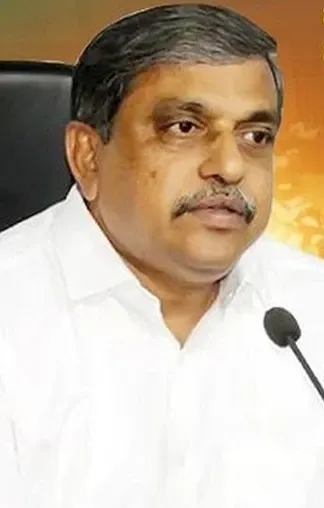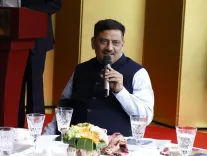Should Action Be Taken Against YSRCP Leader for Inappropriate Remarks?

Synopsis
In a recent development, Andhra Pradesh Assembly Deputy Speaker K. Raghu Rama Krishna Raju has called for action against YSR Congress Party leader Sajjala Ramakrishna Reddy for his alleged derogatory remarks about women. This incident has sparked a significant controversy, raising questions about the protection of women's dignity in political discourse.
Key Takeaways
- Amaravati Deputy Speaker demands action against YSRCP leader.
- Controversy surrounds comments made about women.
- Call for accountability in political discourse.
- Legal implications under SC/ST Act highlighted.
- Political leaders urged to maintain respectful communication.
Amaravati, June 10 (NationPress) - The Deputy Speaker of the Andhra Pradesh Assembly, K. Raghu Rama Krishna Raju, has called for disciplinary measures against YSR Congress Party leader Sajjala Ramakrishna Reddy due to his purportedly inappropriate comments regarding women from the state capital, Amaravati.
The leader from the Telugu Desam Party (TDP) sent a formal request to the Director General of Police on Tuesday, urging action against Sajjala for remarks allegedly made during a press conference on Monday.
The Deputy Speaker accused YSRCP State coordinator Sajjala of making casteist statements while defending ‘Sakshi TV’ anchor Kommineni Srinivasa Rao, who was apprehended by the police on Monday for his alleged derogatory comments concerning women from Amaravati during a televised debate.
Raju emphasized that Sajjala’s comments have offended the sentiments of countless individuals in Amaravati. He insisted that a case be filed against him under the SC/ST (Prevention of Atrocities) Act.
Furthermore, he urged the DGP to take measures to prevent such remarks in the future.
Sajjala had made controversial statements while defending Srinivasa Rao and analyst Krishnam Raju, both of whom have faced legal action for their comments about women from Amaravati during a discussion on a channel affiliated with YSRCP president and former chief minister Y.S. Jagan Mohan Reddy.
Expressing strong disapproval of Srinivasa Rao’s arrest, Sajjala Ramakrishna Reddy labeled it as a blemish on democracy.
The YSRCP leader claimed that the anchor had warned the analyst about making such remarks, which were derived from a media report. The presenter did not pursue the discussion further.
Sajjala, a former advisor to the state government, accused Chief Minister N. Chandrababu Naidu of orchestrating a plot to escalate this matter.
He argued that despite clarifications from Srinivasa Rao and explanations from analyst Krishnam Raju, the incident was sensationalized.
“From Naidu to Deputy CM Pawan Kalyan, TDP leaders and their propaganda machinery have inflated this issue in a systematic manner, culminating in the journalist’s arrest,” Sajjala stated.
He highlighted that the TV channel had distanced itself from the analyst’s comments, clearly indicating that they do not endorse such views, which were personal to Krishnam Raju.
Sajjala claimed that the TDP and its media outlets have exacerbated the situation, targeting the YSRCP leadership and family.
Instead of resolving the issue with the issued clarification and remorse, dissent was intentionally stirred from Srikakulam to Chittoor to distract public attention from the government’s failures in executing its schemes, he concluded.








